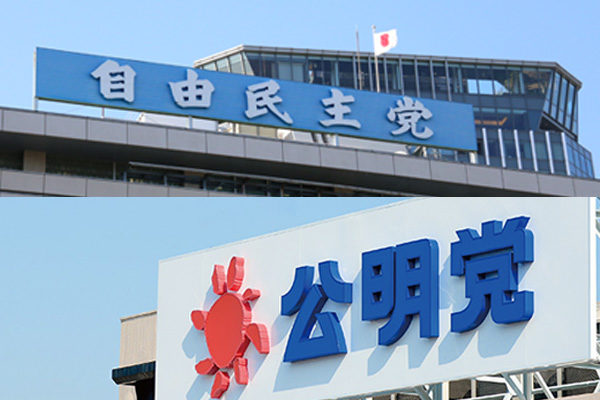The Komeito party notified the Liberal Democratic Party of its decision to dissolve its ruling coalition with the LDP at their leaders’ meeting on October 10, putting an end to their 26-year-old partnership. The LDP-Komeito coalition, though having brought about political stability particularly under the Shinzo Abe government, has had a notable downside: Komeito has been too considerate of China.
Too Considerate of China
Komeito and its supporting organization, the Soka Gakkai, have advocated Japan-China friendship, stemming from their past efforts to restore diplomatic relations between the two countries. As the international community increasingly condemned the human rights violation in China, Komeito said it shared concerns, while acting to the contrary. Regarding the human rights situation in China’s Inner Mongolia, Xinjiang Uyghur, and Tibet autonomous regions and Hong Kong, the two chambers of Japan’s National Diet adopted a human rights situation resolution in 2022 calling on the government to gather factual information and implement comprehensive policies. In order to gain Komeito’s support for the resolution, however, the adopted resolution had to omit words such as “China,” “condemn” and “human rights violations.”
Sanae Takaichi, the newly elected president of the LDP, has been active as the chair of a parliamentary league to address human rights issues in Inner Mongolia. Media reports have frequently cited Komeito’s concerns that Japan’s relations with China may deteriorate if Takaichi becomes prime minister. In fact, however, Komeito has stood in the way of Takaichi, who has been working on human rights issues. Now that Komeito ended the coalition with the LDP, Takaichi no longer needs to take Komeito’s stance into account. Takaichi is expected to cooperate with Western countries in addressing China’s human rights issues.
Paragraph 2 of Constitution’s Article 9
The same applies to constitutional amendments. Since its founding, the LDP has upheld the enactment of an independent constitution as a core party principle. Among LDP leaders, Abe was particularly enthusiastic about the amendments. On May 3, 2017, to mark the 70th anniversary of the enforcement of the current constitution, Abe unexpectedly proposed to retain Paragraph 2 of the constitution’s Article 9, which stipulates that “land, sea, and air forces, as well as other war potential, will never be maintained,” while adding a new provision explicitly recognizing the existence of the Self-Defense Forces. The proposal to retain the paragraph sent shockwaves both within and outside the LDP. Abe went so far as to withdraw his original argument in order to obtain consent from Komeito, which is cautious about constitutional amendments.
In September, the Japan Innovation Party, an opposition party, released a policy proposal that included the deletion of Paragraph 2. Takaichi should come back to the LDP’s earlier proposals prepared in 2005 and 2012, which also called for the deletion of the paragraph, and seek cooperation with parties like the Japan Innovation Party. If the right to collective self-defense is fully recognized through the deletion of the paragraph, the Japan-U.S. alliance could be developed into a more reciprocal partnership.
“Steel Lady”
Takaichi, though facing a tough challenge due to Komeito’s exit from the ruling coalition, seems to view the pinch as an opportunity. She told this author that she would become a “steel lady” instead of an “iron lady,” a nickname of the late former British Prime Minister Margaret Thatcher, whom Takaichi respects. Steel is said to be stronger and more resilient than iron. Takaichi is expected to move forward with that spirit.
Takashi Arimoto is a Planning Committee member at the Japan Institute for National Fundamentals and a columnist at the Sankei Shimbun newspaper.


